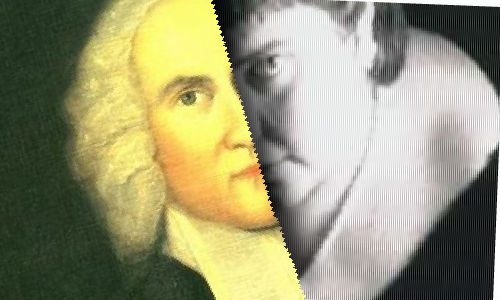I am a lesbian novelist. I’ve had an active relationship with queer literary culture ever since I published my first poem in a lesbian journal in 1985. Folks who know my work tend to look startled when I tell them that I’ve recently finished the manuscript of a novel about eighteenth century Calvinist minister Jonathan Edwards. I understand the raised eyebrows, but it breaks my heart that women’s writing vanishes even from queer and feminist media when it strays from narrowly proscribed topics. Engaging with ambitious work by women writers without restriction as to subject is the only way to fully tap into the power of witness and struggle as transformed in our art.
My new work has no explicit LGBT content, but my lesbian sensibility is there in every word. Reading other lesbian writers, publishing with feminist presses, and spending time every week in lesbian writers groups taught me to stay with the effort to find words for experiences that I didn’t know how to talk about. Lesbians taught me to trust my instincts about when a story was worth telling, even if it seemed that nobody around me could possibly be interested. It has been frightening (and exhilarating) for me as a writer who loves and needs her communities to spend the past few years writing a novel about religious history, but it was lesbians who taught me how to tell the stories that arise from venturing into what feels like forbidden territory.
The territory feels forbidden, except that Protestant religious history is part of what formed contemporary U.S. culture, and it is part of what formed me, too. In writing this book, I felt tremendous responsibility to be as true as I could to the historical, ideological and emotional realities of that earlier time and place as I understood them, and to give each character as compelling a voice as I could. I know what it is to have my own voice distorted, devalued and ignored.
I want my work to continue to be part of the LGBT literary conversation even as it enters into other conversations, too. Not only that: I want to see more extensive discussion of books like Ann Pancake’s Strange As This Weather Has Been, a tremendously moving novel about mountaintop removal coal mining. It includes original and devastating depictions of gendered experience, but it is the intensity of the book as a whole that makes it feel so much a part of the urgent tradition that taught me to write.
The women’s movement created journals, presses and bookstores willing to traffic in writing like mine out of collective need and engaged dreams. Both need and dreams have matured enough to support our writers as we imagine more of the world, including lives different than our own. There has to be room in contemporary LGBT publishing for women to keep expanding the scope and reach of the books we write.
Susan Stinson is the author of four books, most recently Venus of Chalk, a Lambda Literary Award finalist. Her novel-in-progress, Spider in a Tree, is about the 18th century Calvinist theologian Jonathan Edwards, who preached in Northampton, MA, where she lives. She’s also an editor, a writing coach, and was recently appointed Writer in Residence at Forbes Library. She can be found online at susanstinson.net and susanstinson.livejournal.com.
This article first appeared in Lambda Literary.
